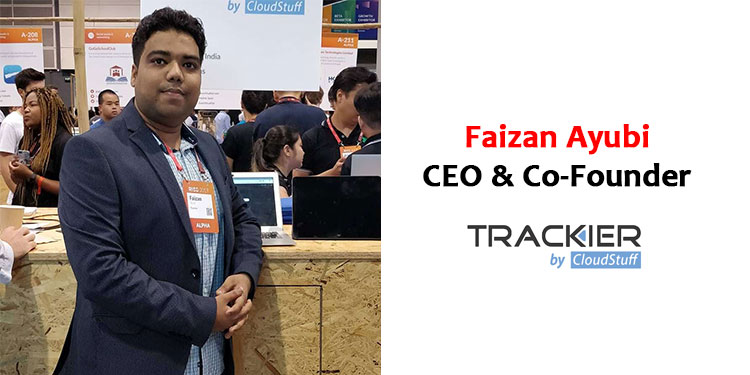Notwithstanding the shadow of Covid still hanging over the economies around the world, digitization has become an irreversible force of nature for businesses as well as individuals. And with smart technologies and platforms continuing to evolve, the marketing and advertising industry too is poised for considerable change. Even as some of the old forms and practices will continue, a few new ones will also make an appearance and crystallize into established practices eventually. In an age when Digital Darwinism – a phenomenon wherein the society and technology evolve faster than companies’ ability to adapt – is at full play, brands must keep pace with the upcoming new trends while retaining the ability to capitalize on existing trends. In other words, keeping an eye on the latest trends is the key to staying ahead of the curve.
With explosion in social media and instant messaging platforms usage especially on internet-enabled smartphones, some of the trends and formats likely to prevail and gain traction in 2021 would include conversational marketing, highly individualized one-to-one advertising, influencer marketing, mobile advertising with in-app and in-game ads, video advertising, video-embedded display banners, native advertising, accelerated pivot to automation, programmatic advertising and even cookieless advertising, among others. The following captures some of these trends.
Conversational Marketing: This facilitates a one-to-one, real-time connection between customers and marketers. According to research, when customers ask a question, 82% want an immediate response. As such, conversational marketing would continue to be an important part of a successful marketing strategy whereby businesses can gain lasting trust and loyalty of consumers. The new-age AI technology-enabled chatbots are at the forefront of conversational marketing.
Highly personalized content experience: Another trend that is likely to prevail in 2021 would be brands delivering highly individualized ad content experience for end-consumers. Unlike generic ads meant for a collective audience, they would use latest technologies to know what an individual consumer is really looking for and serve the ads accordingly. Sending personalized video message would become more common. Also, the navigation experience for consumers would be more user-friendly with more sophisticated and clutter-free landing page designs, effective Call-To-Action (CTA) tools as well as clearer and catchier headlines and text.
Experiential marketing: Experiential marketing enabling a more direct and interactive form of communication between a brand and its audience would witness more action especially on digital platforms in 2021. It is not merely about trade shows and conferences but involves creating in-person, memorable interactions between brands and customers, both existing and potential. The objective is to help customers build positive associations with a brand. The XR or extended reality technologies along with AR/VR/MR technologies which can integrate real and virtual world components will further revolutionize how the content is created and consumed in the context of experiential marketing in 2021.
Mobile advertising: With ever-rising smartphone penetration and end-users’ spending more and more time on their phones for e-commerce and entertainment including usage of videos and OTT platforms, mobile advertising will possibly become one of the biggest trends in 2021. Along with search and mobile browsers, while in-app ads and in-game ads would see heightened action, the rising story ads on social media platforms such as Instagram and others would further fuel this medium.
Programmatic Advertising: Programmatic advertising promises an exciting time for online marketing in 2021. Instead of the traditional RFPs, Insert Orders (IOs) and negotiations, AI-driven platforms would enable media purchase in a real-time bidding context with an eye on a niche audience. Over the years, it has emerged as a key digital marketing tool across the industry. An earlier estimate had predicted that about $81 billion would be spent programmatically by 2021.
Video advertising: Needless to say, given the intrinsic appeal of the format, short-form videos and presentations would drive video advertising like never before in 2021. In fact, videos would be embedded into display banners enhancing the attractiveness quotient for the brand while communicating a message more meaningfully to the desired audience. The live-streaming of videos would also enable the delivery of more timely and context-relevant ad content to the end-consumer.
Native advertising: While native advertising has been there for some years now allowing ad content to subtlety and seamlessly blend into the larger environment without intruding into viewer’s experience, it will remain an important tool in the hands of marketers and advertisers in 2021 too.
Influencer marketing: Another big trend likely to catch on in the marketing and advertising industry would be influencer marketing in 2021. With the traditional celebrity endorsement route increasingly losing lustre and the always-on interactive nature of social media platforms, brands would opt for influencers who typically come with recognition and credibility in niche subjects. Their dedicated following would not only better amplify a brand’s products and services but also cut down on costs for the brand.
Sharp pivot to automation: With stressed budgets thanks to Covid, marketers and advertisers would stick with the automation route even when budgets get to normal levels with an eye on keeping costs low and improving over-all efficiency in 2021.
In addition to the above, some of the other forms of marketing which brands would increasingly opt for in 2021 would be affiliate marketing as well as a more concrete and measurement-driven performance marketing. At the same time, pushed by regulatory authorities stemming from concerns on data privacy, cookieless advertising would gradually become more of a norm for the industry. In view of such a wide ranging nature of new marketing and advertising trends making their appearance, companies could look to Trackier, one-stop digital marketing solutions provider whose proven advanced technology-driven systems have brought extraordinary customer numbers, sales and revenues for brands for years.
Article is authored by Faizan Ayubhi, CEO & Co-founder of Trackier.
















